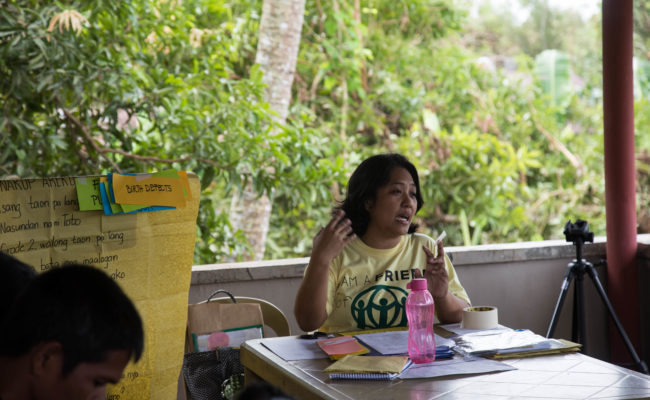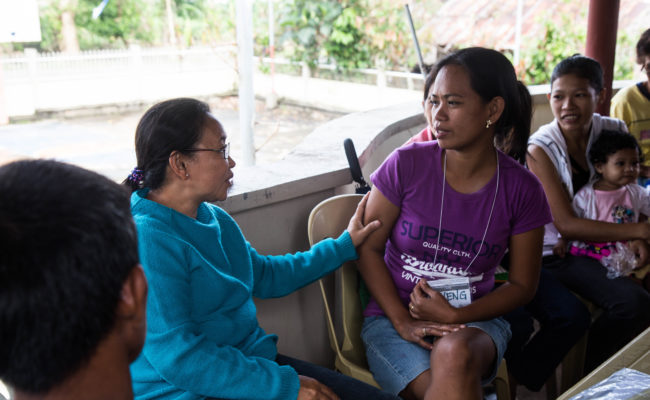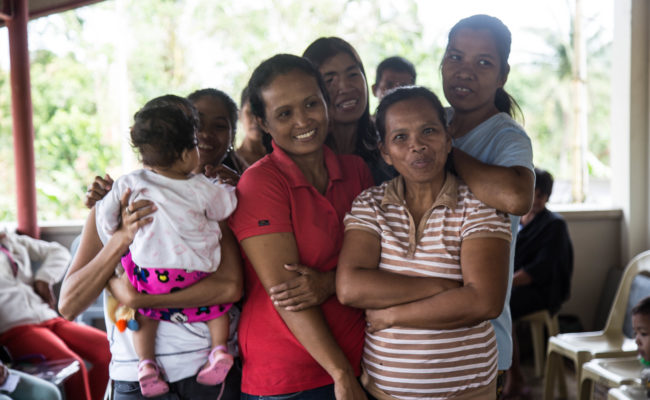For the second to last weeks in January, the EMBRACE MCH Field Assistants set to work in their communities with the the second in a series of Reflect Learning Units. This unit focused on the importance of family planning in parenthood, child spacing, options surrounding family planning, and the risk factors with pregnancies.

The EMBRACE project in Camarines Sur is focused on reducing and preventing mother and child deaths in remote communities. The project seeks to address factors such a nutrition, sanitation, and accessible access to health care that contribute to the health and welfare of women of reproductive age, pregnant women, new mothers, and newborns and children under five.
The learning units aimed to not only reach out to mothers and women of reproductive age, but also men, to illustrate that family planning is the responsibility of everyone, and should be something that is openly discussed between partners when starting a family together, as well as continuously throughout the relationship.

One of the ways the training was presented to community leaders was through a role-playing game in which group members played two new couples, one who chooses to practice family planning and the other who leaves it up to chance. The participants were able to see how the impact of family planning – and not planning – had on births and family resources.
Another way was through song, engaging all the participants in the room, an activity that would be returned to throughout the training, giving an easy way to communicate the message of family planning to the group. The training also gave the participants – both men and women from the barangay – the chance to ask questions about family planning and parenthood.

The participants also worked on mock “action plans” to use with families seeking family planning assistance, that would let families get help with choosing interventions and timelines as to the desired future of their family.
After the training Rissey Jane, MCH Field Assistant explained “we lead a discussion for participants about birth control and family size, and who or what influences them when they are making their plans and decisions.”
“Discussing family planning in regards to mother and child health is important because it helps us ensure a safer pregnancy and childbirth, as it also involves how to avoid the risks and protect and for them to achieve the healthiest outcomes when it comes to the whole family.”
“We as Field Assistants before the discussion anticipated that most of the participants would get embarrassed, or shy when asked to be open about their experiences and ideas. But, the discussion went really well, most of the participants were really involved and found the topic enjoyable and fun and relatable.”
The leaders being trained in this group would then go on to facilitate groups of their own in the week following, passing on the information gained to form new learning groups. This step is key in the Reflect model, as it encourages participants to take charge of their own learning.
The Reflect sessions will continue into February, covering three more topics centered around parenthood, and newborn and young childcare.

